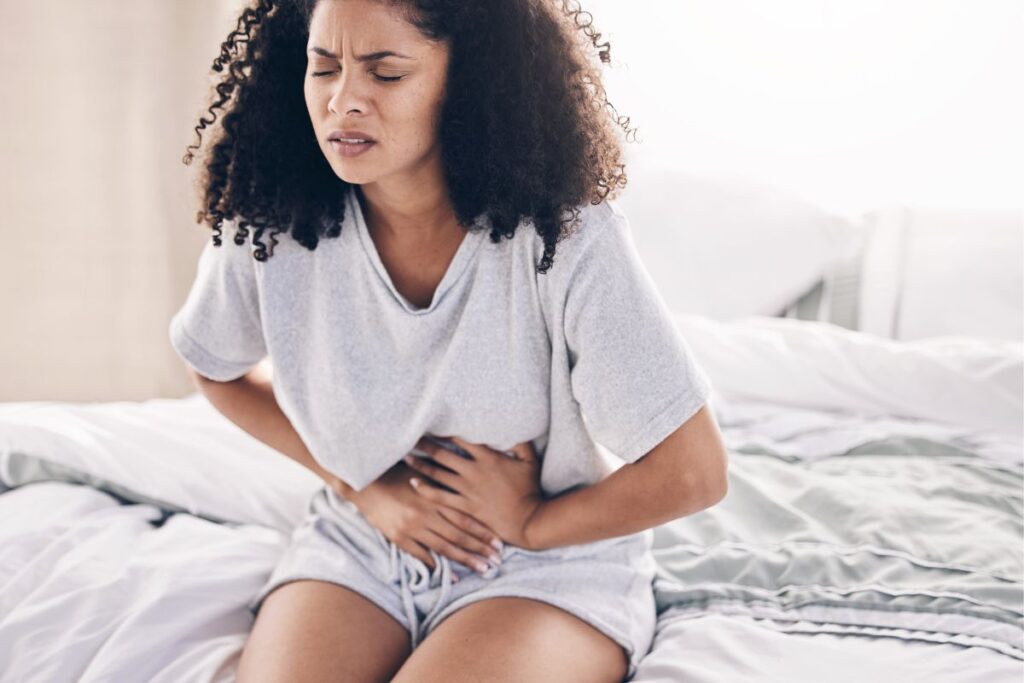Do you have trouble getting pregnant, heavy periods, or constant pelvic pain? If this is the case, you may have endometriosis, a disease that affects millions of women globally. Endometriosis is one of the leading causes of infertility in women, but the good news is that with the right diagnosis and treatment, the symptoms can be managed. In this article, we’ll dive deep into what endometriosis is, its symptoms, and the latest treatment options available.
What is endometriosis?
When tissue that resembles the endometrial or uterine lining grows outside of it, it is known as endometriosis. It can cause pain, inflammation, and even fertility issues. This tissue may develop on the uterus’ outer surface, the fallopian tubes, the ovaries, or even other abdominal organs. Every month, this tissue behaves like the normal uterine lining—thickening, breaking down, and bleeding—except it has no way to exit the body, leading to inflammation and scarring.
Symptoms of Endometriosis
● Pelvic Pain: This is the most common symptom, often occurring during menstruation but can also happen at other times in the menstrual cycle.
● Heavy menstrual bleeding (Menorrhagia): Abnormally heavy or prolonged periods are typical in women with endometriosis.
● Infertility: Scarring and adhesions caused by endometriosis can block the fallopian tubes and decrease fertility.
● Pain during Intercourse: Deep penetration can trigger pain in women with endometriosis.
● Painful Urination and Bowel Movements: Along with affecting the digestive and urinary systems, endometriosis can cause painful bowel movements and urination, especially while having periods.
Causes of Endometriosis:
Although the exact cause of endometriosis is not known, several theories exist:
● Retrograde Menstruation: Menstrual blood flows backwards into the fallopian tubes instead of out of the body, causing endometrial cells to implant outside the uterus.
● Genetics: If a close relative has endometriosis, you are more likely to develop the condition.
● Immune System Dysfunction: A weak immune system may be less able to clear endometrial tissue growing outside the uterus.
Treatment for Endometriosis
● Pain Management: Over-the-counter pain relievers like NSAIDs (e.g., ibuprofen) can help alleviate pain.
● Hormonal Therapy: Birth control pills, progestin therapy, and IUDs can help control the hormonal fluctuations that worsen symptoms.
● Surgery: In severe cases, laparoscopy or hysterectomy (removal of the uterus) may be necessary to remove endometrial tissue.
● Lifestyle Changes: Reducing stress, eating a balanced diet, and exercising regularly can all help control symptoms.
Myths About Endometriosis
1. Myth: “Endometriosis only affects older women.”
● Truth: Endometriosis can affect women of any age, though it’s most commonly diagnosed in women in their 30s and 40s.
2. Myth: “Endometriosis causes infertility in all women.”
● Truth: While endometriosis can cause fertility issues, many women with endometriosis can still conceive naturally or with the help of fertility treatments.
3. Myth: “Endometriosis will go away on its own.”
● Truth: Endometriosis typically does not resolve on its own and requires treatment to manage symptoms and improve quality of life.
FAQ
How is endometriosis diagnosed?
The most reliable diagnosis is made through laparoscopy, a minor surgical procedure where a doctor can view the pelvic area and take biopsies.
Can I get pregnant if I have endometriosis?
While endometriosis can reduce fertility, many women with the condition conceive with the right treatment, including fertility medication or IVF.
Is there a cure for endometriosis?
No, there is no cure for this, but if you change your lifestyle by incorporating workouts, including more greens in your diet, and restricting alcohol, along with medications and surgery if needed, its symptoms can be managed.
Can diet help with endometriosis symptoms?
Some studies suggest that an anti-inflammatory diet may help reduce symptoms, though more research is needed.
Disclaimer:
This article should not be used in place of expert medical advice; it is merely meant to be informative. For a diagnosis and treatment plan, always get advice from a physician.
How HealthPil Can Help:
Endometriosis can be diagnosed and treated with the help of gynaecologists and fertility specialists who are available for consultation at HealthPil. Contact us to create an individual treatment strategy.

